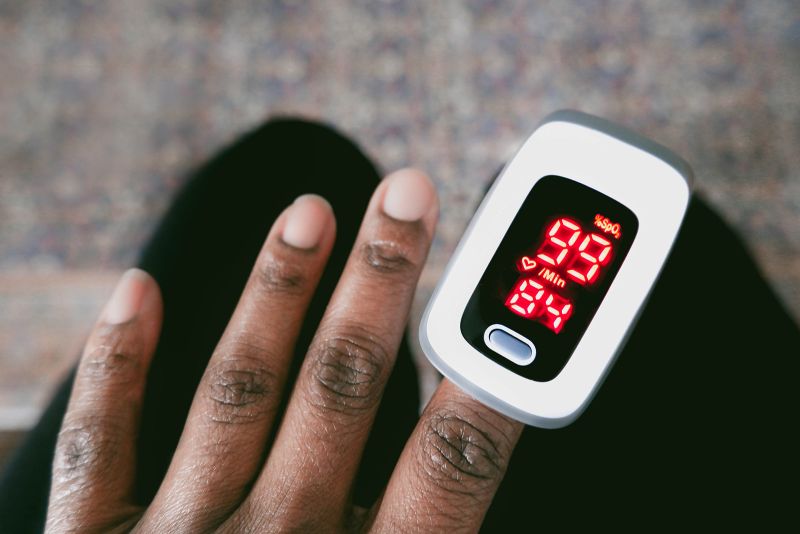
Addressing the Accuracy of Pulse Oximeters for People with Dark Skin Tones

The accuracy of pulse oximeters for people with dark skin tones is under scrutiny, as research shows that these devices may provide less accurate readings for individuals with darker pigmentation. This article explores the ongoing efforts to address this issue and highlights the importance of ensuring the accuracy of pulse oximeters for all skin tones.
Understanding the Issue
The accuracy of pulse oximeters has been a subject of concern, particularly in relation to individuals with darker skin tones. Research has indicated that pulse oximeters may provide less accurate readings for people with darker pigmentation, leading to potential inaccuracies in oxygen saturation levels and pulse rate measurements. The implications of such inaccuracies are significant, especially in medical care settings where accurate readings are critical for patient care and treatment decisions. This article delves into the complexities of this issue and the ongoing efforts to address it.
Pulse oximeters, commonly used to estimate blood oxygen saturation and pulse rate, have been found to be less reliable in individuals with darker skin tones. The absorption of light by the sensors of these devices can be affected by skin pigmentation, resulting in inaccurate readings. This discrepancy has raised concerns about the potential risks associated with using pulse oximeters that are not calibrated for diverse skin tones. As a result, the US Food and Drug Administration (FDA) has convened a panel of experts to review and improve the evaluation of pulse oximeters, with a specific focus on accuracy across different skin tones.
Pulse oximeters are used to check blood oxygen saturation levels and heart rate, but growing research suggests these devices may be less accurate in individuals with darker skin pigmentation.
The impact of inaccurate pulse oximeter readings extends beyond individual health monitoring, particularly in the context of the COVID-19 pandemic. The reliance on pulse oximeters for monitoring oxygen levels during the pandemic has brought attention to the racial disparities in the accuracy of these devices. It has become increasingly evident that addressing the accuracy of pulse oximeters is not only a matter of individual health care but also a crucial step in addressing systemic biases in medical devices and practices.
The FDA Panel's Review
The US Food and Drug Administration's Anesthesiology and Respiratory Therapy Devices Panel of the Medical Devices Advisory Committee is convening to review the accuracy and performance of pulse oximeters, specifically focusing on their evaluation in patients with darker skin tones. The panel's discussions center around the need to improve the quality of premarket studies and associated methods used to evaluate the performance of pulse oximeters submitted for premarket review. The consideration of skin pigmentation, as well as patient-reported race and ethnicity, is integral to the panel's assessment of pulse oximeter accuracy and reliability.
The significance of the FDA panel's review lies in its potential to drive advancements in the evaluation and calibration of pulse oximeters, ensuring that these devices are designed to provide accurate readings across diverse skin tones. The outcomes of the panel's discussions and recommendations are expected to shape the regulatory standards for pulse oximeters and contribute to the development of more inclusive and reliable medical devices.
The historical underrepresentation of diverse groups in the development and evaluation of medical devices has underscored the need for a comprehensive reevaluation of pulse oximeters and other healthcare technologies. By addressing the limitations and biases in existing evaluation methods, the FDA panel aims to pave the way for improved standards that prioritize accuracy and inclusivity in medical device design and performance assessment.
Implications for Healthcare and Equity
The implications of addressing the accuracy of pulse oximeters extend beyond individual health monitoring and medical device regulation. It encompasses a broader commitment to equity and inclusivity in healthcare, particularly in the context of addressing systemic biases and disparities in medical care. The recognition of the impact of skin pigmentation on pulse oximeter readings underscores the need for comprehensive research and development that considers diverse patient populations.
Moreover, the findings and recommendations stemming from the FDA panel's review have the potential to drive transformative changes in healthcare practices and device design. By prioritizing accuracy and inclusivity in pulse oximeter evaluation, the healthcare industry can take significant strides towards mitigating disparities in medical care and advancing equitable healthcare practices.
The ongoing efforts to address the accuracy of pulse oximeters for people with dark skin tones are a testament to the commitment to advancing healthcare equity and inclusivity. By challenging existing norms and biases in medical device evaluation, the pursuit of accurate and reliable pulse oximeters for all skin tones represents a critical step in advancing healthcare equity and ensuring that healthcare technologies serve diverse patient populations effectively.












